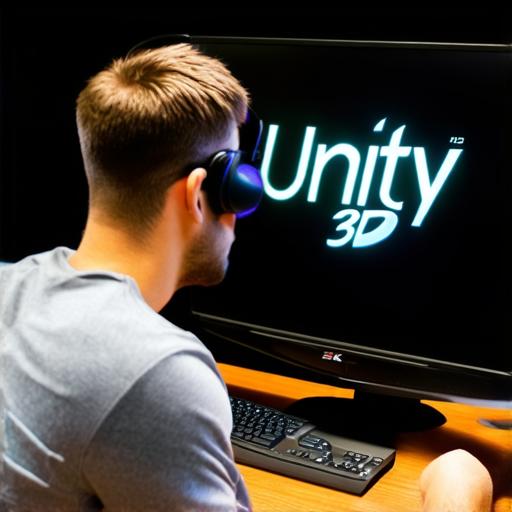
The Unity 3D game engine is one of the most popular and widely used game engines in the gaming industry. It offers a range of features that make it ideal for creating both 2D and 3D games, including mobile, desktop, and web-based applications.
Introduction
Unity 3D is one of the most popular and widely used game engines in the gaming industry. It offers a range of features that make it ideal for creating both 2D and 3D games, including mobile, desktop, and web-based applications.

What is Unity 3D?
Unity 3D is a cross-platform game engine that allows developers to create games for various platforms, including mobile devices, desktop computers, consoles, and web browsers. It was created by Dan Cook in 2008 and has since grown into a powerful tool used by professionals and enthusiasts alike.
Key Features of Unity 3D
1. Scriptable
Unity 3D is highly scriptable, allowing developers to write custom code to create unique game mechanics, animations, and user interfaces. It supports various programming languages, including C, JavaScript, and Boo, making it easy for developers to work with their preferred language.
2. Cross-Platform
Unity 3D supports multiple platforms, including Android, iOS, Windows, macOS, Linux, and consoles like PlayStation, Xbox, and Nintendo Switch. This means that a single game can be developed for multiple platforms, saving developers time and effort.
3. Asset Store
The Unity Asset Store is an online marketplace where developers can purchase pre-made assets, such as models, textures, animations, and plugins, to accelerate their development process. It also provides a platform for independent developers to sell their own assets, making it easier for them to monetize their work.
4. Real-Time Rendering
Unity 3D uses real-time rendering, which means that the graphics and effects are updated in real-time as the game progresses. This makes it easy for developers to create complex and immersive environments, as well as dynamic lighting and weather effects.
5. Physics Engine
Unity 3D has a built-in physics engine that allows developers to simulate realistic physical interactions between objects in their games. This includes gravity, collisions, rigidbody dynamics, and more, making it easy for developers to create realistic gameplay mechanics.
How Unity 3D Works
Unity 3D works by using a combination of scripts, assets, and scenes to create a game. Here’s a breakdown of how it works:
- Scene Creation
The first step in creating a game with Unity 3D is to create a scene. This involves placing objects in the world, setting up camera angles and lighting, and adding any necessary scripting or animation.
- Asset Import
Once the scene is created, assets can be imported into the project. These include models, textures, animations, sounds, and other media that will be used in the game.
- Scripting
Scripts are written to control the behavior of objects in the game. These scripts define how objects interact with each other, how they respond to user input, and how they behave in different scenarios.
- Compilation
The final step is to compile the project into a game that can be run on the target platform. This involves exporting the necessary files and configuration settings for the target platform, such as the mobile device or console.
Case Studies: Unity 3D in Action
1. Pokémon Go
Pokémon Go is one of the most popular mobile games ever created, with millions of users worldwide. It was developed using Unity 3D and showcases the engine’s ability to create immersive and engaging gameplay experiences on mobile devices.
2. Superhot
Superhot is a puzzle-platformer game that was created using Unity 3D. It features unique time manipulation mechanics and dynamic lighting effects, which were made possible by Unity 3D’s real-time rendering capabilities.
3. The Room
The Room is a series of point-and-click adventure games that were developed using Unity 3D. The games feature complex puzzles and immersive environments, which were made possible by the engine’s scripting and asset import capabilities.
FAQs
Q: What platforms does Unity 3D support?
Unity 3D supports multiple platforms, including mobile devices, desktop computers, consoles, and web browsers.
Q: Is Unity 3D easy to learn?
Yes, Unity 3D is relatively easy to learn, with a wide range of tutorials and resources available online for beginners.
Q: Can I monetize my game using Unity 3D?
Yes, Unity 3D allows developers to monetize their games through various means, including sales, in-app purchases, and advertising.
Summary
Unity 3D is a powerful and versatile game engine that offers a range of features for creating engaging and immersive gaming experiences. Its ease of use, cross-platform compatibility, and extensive asset store make it an ideal tool for both beginners and professionals alike. Whether you’re looking to create a mobile app, console game, or PC game, Unity 3D has everything you need to bring your vision to life.

